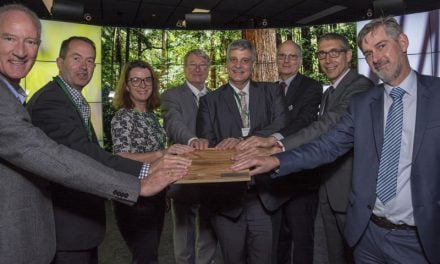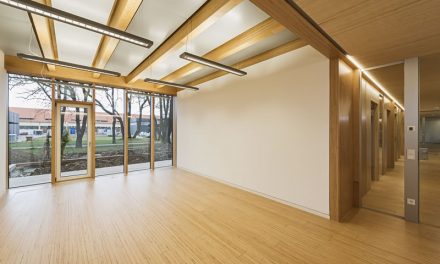TIMMS/Willdoo IT
TIMMS (Timber Industry Management and Marketing System) is a comprehensive ERP (enterprise resource planning) software suite for accounting and inventory management, from sales to operations and accounts. TIMMS was formally the primary product of Disprax, which has now merged with Willow IT to form Willdoo IT. Willdoo IT is part of PNORS Technology Group, which also includes Datatime, Netway Networks and Pacific Commerce.
“TIMMS has been designed specifically for the timber industry to handle complex intricacies of the timber and hardware industries, such as having multiple units of measure per product in metric and imperial,” says Paul Gallo, group chief executive officer of PNORS.
TIMMS has a unique modular design, so each business can select the best TIMMS configuration for their business. Modules include everything from trade and cash sales, asset and inventory management, sales analysis, payroll, accounts receivable and payable, job tracking, re-processing, import/export and stocktaking. As a business grows and changes, TIMMS’ flexibility allows the system to be expanded as required.
Before each installation of TIMMS, the company performs a “scoping and discovery”, with each customer before designing TIMMS for their specific needs.
“They only need to purchase modules that are required for their business,” Gallo explains. “TIMMS is fully integrated with inventory, accounting, manufacturing and payroll, so a timber business will only require one suite of software to manage their entire business.”
TIMMS was first introduced in early 1980s when majority of timber was imported for the Australian market, so it was used predominately in import and wholesale distribution. There has been tremendous amount of change since then – not just to the visual aspect of TIMMS, but also new functionality such TIMMS for Log Management and Sawmilling, TIMMS for Trade Retail with full POS (Point Of Sale), TIMMS for Reprocesses and Manufacturing.
“Recently we have added TIMMS CRM (Customer Relationship Management) and TIMMS BI (Business Intelligence),” Gallo says,” “Willdoo IT has also developed TIMMS EDI (Electronic Data Interchange) that saves timber businesses many hours of data entry as data is exchanged in an electronic format, increasing accuracy, speed and efficiency.
“TIMMS is the only product on the market that can manage inventory form timber logs, to sawmilling, to wholesale and distribution, import/export, all the way to trade retail environment where timber is sold in pieces and lengths.”
TIMMS is specifically designed for the timber industry, so it takes minimal time to set up and go live compared to off-the-shelf software or non-timber specific software. The software can be used for businesses with as few as three users up to an unlimited number of users. With current server technology TIMMS can co-exist alongside any other operating system/programs such Microsoft Exchange or any Linux operating system.
“We also provide TIMMS hosted where a business can purchase TIMMS in SaaS (Software as a Service), which means they don’t need to invest in hardware or software.” Gallo says.
Training programs form an integral part of the services provided by WilldooIT, and the company releases a new TIMMS update twice a year. A dedicated support team is available every working day of the year, with multiple methods of contact for any situations that may arise, which includes support over the internet or telephone support.
John Fizzell, accountant at Belmont Timber, has been using TIMMS software since starting at the company in 2000.
“We do everything through TIMMS,” he says. “We use quite a few of the modules, such as accounts payable, accounts receivable, payroll and point of sale. You don’t have to buy everything – only what you need. And we’re able to integrate everything. It covers everything. The best part is that TIMMS is timber-specific. While we’re only a small business, it’s something that can be used for a business of any size – it’s extremely adaptable.”
WilldooIT’s next major development will be to take TIMMS into the cloud and open source.
“Taking it to the cloud means that a user of TIMMS will have access to their data from anywhere, as long as they have access to the internet and a web browser,” Gallo says. “The advantages of open source are many – not just the price. Open source means that a business is not locked in to just one supplier but may obtain similar/same service from many other vendors, which means that Willdoo IT must continually provide exceptional and uncompromised service.”
Vesta Timber and Hardware
Vesta offers two unique pieces of data distribution software. The Retail Portal is specifically for the retailer; the Supplier Portal is designed for industry suppliers. These portals allow retailers and suppliers to easily manage all their information requests in one easy to use piece of software.
“We believe the future for timber and hardware merchants is joining the dots between the physical stores they operate in and an online presence where consumers do their research,” says Vesta CEO Justin Newman. “You can’t simply ignore being online like you once could and the research shows that offering products online actually encourages more in-store physical transactions.
“At Vesta we provide the platform for timber and hardware retailers and suppliers to promote and sell their products online, and communicate information about their products
more efficiently and easier than ever before. You could say Vesta is in the solutions business – identifying the hurdles that the industry faces with technology and providing solutions.”
The software was created after Vesta saw an opportunity to help the independents in the industry improve their online presence while allowing them to sell online.
“This is a unique industry, especially in the diversity of the range of products available from so many different suppliers,” Newman says. “There was no doubt in our mind that a platform had to be developed that allowed retailers and suppliers to communicate more efficiently so that information could find its way online.”
So what makes Vesta Timber and Hardware unique? While there are a variety of e-commerce platforms out there, many require their customers to fill SKU [stock keeping unit] by SKU, photo by photo themselves – which takes an enormous amount of time.
“What make us unique is we bring the suppliers and retailers together and this allows us to quickly populate the online shelves in such a way that a link is created and whenever content is revised or updated by the supplier the online stores where those products are sitting also update,” Newman says. “This gives suppliers greater control over how their brand is presented online while saving retailers a significant amount of set-up and ongoing maintenance time.
“Through our platform, suppliers are given visibility of where their data is being displayed online at all times and can continually work to improve it and make it more relevant to consumers and tradespeople without having to manually redistribute changes.”
There are millions of people searching the internet every day, looking for products and services. Online shopping is increasing every year – Australian consumers spent an estimated $20.1 billion over the last year purchasing goods and services online, according to the NAB Online Retail Sales Index: Indepth report – June 2016. More people are now seeing the internet as a convenient method for purchasing products of all varieties – including timber and hardware products.
“In the past, improving your online presence or starting from scratch was difficult and cost a lot of time and money,” Newman says. “Vesta can take all the time out of it and deliver an efficient, cost-effective solution.”
The software is scalable to cater for businesses of any size and any number of suppliers. No special equipment is required – Vesta provides everything as part of the solution they are offering and work with what a customer already has.
“Many of our clients take us up on an offer of a custom website,” Newman says. “We can also provide POS systems or the e-commerce platform with the product data from your existing suppliers – it’s completely tailored to suit the individual business’ needs.”
Vesta also offer ongoing training and support to their customers to ensure that the platform develops and continues to perform well and continue seeing results. Several new features are being released soon, to make the process for suppliers and the sharing of information with customers even easier and faster.
“The timber and hardware industry is starting to see the benefits of e-commerce and it is embracing the change,” Newman says. “It’s s something that everyone I speak to can see the benefits of, but there is more work to do in this area.”
Hyne Design 7.5
The evolution of timber-related software goes far beyond sales and inventory. New generation building design software is allowing engineers, architects and builders to see their creations come to live in three dimensions – right on their tablet or computer screen.
Hyne Timber Design 7.5 has been developed by engineers, but not specifically for engineers’ use only. Anyone with knowledge of timber terms, building techniques, drafting of domestic buildings, architects or even engineers can use it. However, many of the features were implemented for engineers, and can be used as an invaluable tool by them for timber beam design.
Timber detailers, truss detailers, quantity surveyors, and builders can also gain confidence in the products they specify or use by knowing “how much will the beam deflect?”, or “How much bounce in this product as a floor joist?”
“Hyne Timber Design 7.5 was initially designed for engineers but over the years it’s now used by most building professionals including truss and frame suppliers, timber merchants, builders, building designers, architects and engineers,” says Jeremy Mead, Hyne marketing manager. “It’s also used by home owners and DIYers. Its purpose is to provide structural member designs for timber framed structures.”
Hyne’s software has been evolving for over 15 years, starting out as a complex spreadsheet that the company used internally to design with Hyne’s range of solid wood and glue-laminated (glulam) beams.
“Over the years it has been developed and evolved into a product that allows simple input to more complex designs and now has the benefit of Load Path applications,” Mead says. “This allows the user to design simple elements and apply these to the more complex timber components. A link between these components remains so that if any one element is altered, the software identifies this and requires the other components to be redesigned.”
Hyne Timber Design 7.5 is unique in that it offers an intuitive, scalable design approach and is extremely powerful in terms of what you can design with it. It includes the most readily available timber products (not just Hyne Timber products) and it provides the ability for users to be registered at an acceptable and endorsed level of competency. Extensive reporting options are available, and technical support and training are provided.
“Users get certified design results backed by fully qualified engineers, and quick and easy timber design analysis allows for fast decision making when moving through a set of designs – products are easily compared without having to design with each individual option,” Mead explains. “The software also has the ability to set limits of performance, so as not to design members that do not meet individual performance requirements.
“Our customers need us to stay up-to-date with all relevant codes and standards. The current design platform for Residential Buildings is based on AS1684.1 Design Principals. We anticipate that this will change in 2017 to AS1720.3 which will require significant update.
Also, we continue to provide a great selection of products to draw on for all possible design outcomes.”
Hyne Timber Design 7.5 can be used by individuals and small to medium businesses, right up to large companies where software is deployed via large networks.
“The software is generic, but allows for customisation by the user, so individuals can choose what products are available for design outcomes and set certain design criteria to their liking,” Mead says. “Support is tailored to the customer. Some require download assistance which can be provided by our support staff, others will require phone support for more technical inquiries and some require in-house training and support.”
TimberSmart Software
Who better to design a software package for the timber industry than those who work in the timber industry? This is the key point of difference with Timbersmart Software, which provides effective and more profitable timber enterprise management for customers across the timber industry, including log exporters, saw millers, timber remanufacturing, wholesalers, importers, timber and hardware operations.
“We understand what the industry needs,” says Chris Moysey, Managing Director at TimberSmart. “It’s the only industry we’re in. It’s not a generic product that’s been adapted for the timber industry – it’s come from the timber industry.”
Starting 20 years ago as a PC based timber inventory system, TimberSmart Software has continued to evolve and develop.
“As we add customers on, they need new functionality and so our developers are constantly responding to request from customers – we identify new areas of need,” Moysey says. “For instance, at the moment hand held smart devices is the area we are moving into. We are currently developing applications to suit tablets and phones alongside of our traditional rugged hand held products. The office is moving out of the office, so to speak, into the wider world. It’s more efficient to do things on the move.”
Adaptable to a business of any size from three to 300, TimberSmart customers predominantly use the software for visibility of their stock for manufacturing and sale, control of their business with solid business rules built-in to the application, and quick responses to their needs.
“It’s all about flexibility,” Moysey says. “It’s not ‘you will do this’ or ‘this is the way it has to be done’. We’re always looking for ways to improve efficiency and responding to the needs of the customer – providing solutions. You could call it bespoke software. We’re very good at identifying the appropriate technology to solve a problem and tailor it to each individual customer.”
TimberSmart offers ongoing training to customers, as well as online remote desktop support or via LogMeIn/Teamviewer. The software uses a Microsoft SQL database which allows it to easily connect a range of other products. New developments in the works include web-based interfaces including customer and sales rep portals, CRM and a range of handheld applications for Android and iOS.
“What makes TimberSmart unique is our ability to listen to a customer and to adapt the system to suit their needs, “Moysey says. With some software the product is the product and that’s end of story, but we’ll customise.”
Ironbark Timber
Ironbark Software has developed comprehensive, integrated ERP software solutions for several specific industries, including the timber industry.
“The growing sophistication of the timber industry led to a greater need for traceability of stock and accuracy of financial information,” says Sacha Fahy, Ironbark client services manager. “Ironbark Timber Industry Software provides a single integrated business solution for timber companies, from the mill all the way to retail and point of sale.”
The software has been available for more than 20 years, and Ironbark is constantly re-evaluating the platform and functionality to provide its clients with the latest technology.
“Our product is unique in that it provides complete integration of operational and financial management, designed in response to the specific need of timber companies,” Fahy says. “You can start at the mill all the way through to sales and wholesales. We run Ironbark in multiple industries [including fresh food, fuel and manufacturing], so it gives us the ability to bring innovation from all industries into our timber solution.”
Ironbark’s operational management enables timber to be received and managed through its life cycle, ensuring visibility of stock availability at all points of the value-adding process.
“Ironbark also simplifies management of customers and suppliers while accurately tracking cost and providing full financial reporting,” Fahy says. “Ironbark provides all the needs of the business from payroll, accounts receivable and payable and general ledger as well as BAS and other regulationary reporting.”
Ironbark Timber is module-based, so it’s adaptable for a business of any size and requirements. As the business grows, modules can be added.
“The most popular modules include stock control, debtors, creditors, anything to do with accounts payable accounts receivable and general ledger,” Fahy says.
Ironbark works with each individual customer to tailor the software to the business’ needs. Initial and ongoing training is offered to allow for new staff members and software updates, and there is also a help desk and web portal for customers to seek assistance and access information.
New developments are always on the horizon at Ironbark, with a number of new developments in the works in the coming few years. “We’re currently doing lots of web features for external customers and suppliers, and also new dashboard functionalities,” Fahy says.
For more information:
Timms – willdooit.com
Vesta – vth.net.au
Hyne – hyne.com.au
TimberSmart – timbersmart.com.au
Ironbark – ironbarktimber.com.au










